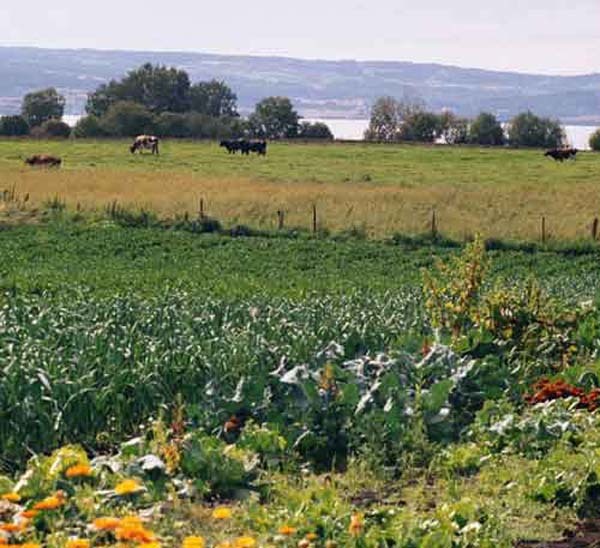Editor’s Note: This is the second in a series of articles by Mischa Popoff and Jay Lehr on modern agriculture and organic farming. Part 1 is here.
The leaders of the American organic food industry, sitting in their perches in offices far removed from the soil and toil of actual farming, sustain an unfounded attack against conventional, nonorganic food, charging that it is impure and hardly nutritious.
We all know that purity and nutrition are readily provable through scientific analysis, but here we have the activist leadership of the multibillion-dollar organic food industry pointing the finger at our main food industry, accusing it of failing to measure up, when all the while there is no field testing being done in the organic industry. In other words, not only is the organic industry not measuring up, it is not even bothering to measure.
In light of these facts, perhaps you’ll forgive us for saying that the organic industry is set up to guarantee a steady supply of operating capital that fuels a movement opposing modern food production techniques and claims that we all have to go backwards as a nation in order to move forward. Could anything be more absurd?
Unfortunately, the answer is yes. Although many will find these revelations astonishing, the fact is that the U.S. Department of Agriculture (USDA) National Organic Program (NOP) was deliberately set up with basically no scientific scrutiny. There is evidence that, to his credit perhaps, President Clinton was opposed to this and that he supported the American Consumers Union’s call for organic field testing back in 1997. But Clinton and the ACU ultimately capitulated, and an entirely politicized, alternative food industry was born, with putative federal oversight and hence federal recognition and de facto endorsement, an industry which seeks ultimately to overthrow the conventional food industry in its entirety.
Perverse Enforcement System
The reason this is allowed to unfold is because even though the USDA’s reputation is at stake here, actual oversight of the organic industry was left in the hands of USDA-accredited organic certifiers which remain in business only as long as their clients (the parties being inspected) stay in business. That is a perverse construct, the opposite of how enforcement works in every other sector of society.
The police, for example, don’t mind if the meth lab they bust quits generating revenue, do they? Likewise, health inspectors don’t care about potential economic ramifications when they shut down a restaurant for health violations. But a USDA-accredited organic certifier collects hefty application, inspection, and certification fees from its clients, fees that will run dry immediately if that client loses the USDA certification its for-profit or not-for-profit USDA-accredited certifier is providing.
The system also involves an even greater perversion: most USDA-accredited organic certifiers also collect “royalties” of 1 to 3 percent on their client’s gross revenues. This can easily amount to as much as 20 percent of an organic producer’s profits. These payments are tantamount to the franchise fees the owner of a McDonald’s restaurant pays in return for the benefits he or she gets from McDonalds’ reputation. But the “royalties” paid to USDA-accredited organic certifiers are paid in exchange for the use of the USDA’s reputation, not the certifier’s.
Thus it’s plain to see that a certifier really has no incentive whatsoever to crack down on a client that might be bending or breaking the rules by using the very substances that organic activists attack the regular agricultural sector for using. The entire arrangement is bound to establish and perpetuate conflict of interest “situations” throughout the multibillion-dollar organic sector.
‘Don’t Ask, Don’t Tell’
There is talk of switching the organic industry from franchise fees to a check-off system like those used in other agricultural sectors to raise funds for political representation. Either way, it’s clear that the leaders of the organic industry recognize the need for a robust revenue stream in order to underwrite the maintenance of its image among politicians and consumers.
They also appreciate the need to avoid any attempt to ensure the accuracy of the organic rating through the implementation of scientific testing of the very crops and livestock claimed to be so superior to regular crops and livestock. It’s kind of like “Don’t ask, don’t tell” for premium-priced food.
It must be stressed again that all these things the organic industry claims to keep out of the premium-priced food it purveys—synthetic pesticides, nitrogen fertilizer, and antibiotics—are perfectly safe when used correctly. And if someone wants to spend a little more (or a lot more) to buy food that was produced without the use of these amendments and medications, we have no wish to deny them that right. They should be free to do so. However, falsely claiming that foods do not use these technologies is fraud, pure and simple.
Mischa Popoff ([email protected]) is a former organic farmer, a USDA-accredited Organic Crop Inspector, and author of the book Is It Organic? Jay Lehr ([email protected]) is science director of The Heartland Institute.






